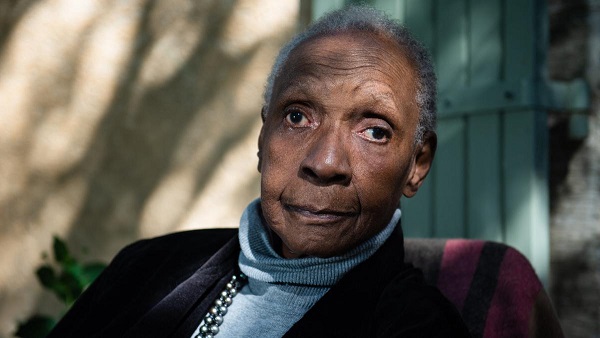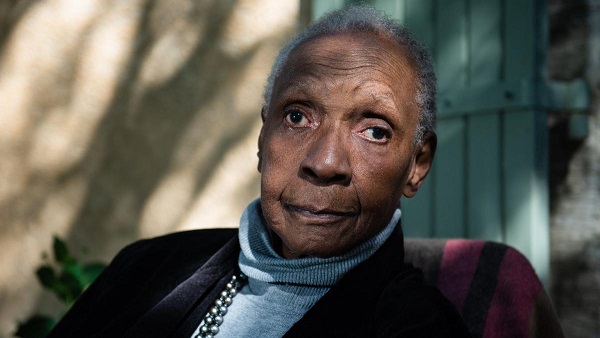
Kunal Ray (The Hindu): “Discovering the overlooked writer Maryse Conde from Guadeloupe and questioning the biases in literary spaces and cultures.” Interesting article because it is so easy to forget that not everyone is immersed in and engaged with the world of Caribbean literature. [Many thanks to Peter Jordens for bringing this item to our attention.]
Guadeloupe? Where’s that? We never read any writer from Guadeloupe in our literature classes. There were Kamau Brathwaite, Derek Walcott, Jamaica Kincaid and of course V.S. Naipaul from the Caribbeans. And Wole Soyinka, Chinua Achebe, Camara Laye, David Diop, Leopold Senghor, Ngugi wa Thiong’o (all men) from Africa. I am not trying to suggest that their writing is any less important or homogenous. They also opened new worlds to us when we first encountered their writings in a sophomore classroom. We discovered new people, places, identities, cultures, conflict, and a language of creative expression. All that is fine, yet there was no Maryse Condé.
I discovered Condé much later in my adult life through an independent Kolkata publisher, Seagull Books, which had published three of her titles: What is Africa to Me?, Of Morsels and Marvels, and The Journey of a Caribbean Writer — each different from the other. I stumbled upon What is Africa to Me? by accident. Or it was curiosity perhaps to pick up a title by an unknown writer (to me) and decipher Africa through the journey of another individual, a non-Eurocentric account of the place and its people.
From France (Paris) to Guinea to Ghana to Senegal, I travelled to several parts of Africa through Condé’s account. The book also unravels a writer trying to understand or discern her ideological self through experiences in life such as her encounters with Che Guevara and Malcolm X, amongst others, and her disagreements with the Negritude Movement.
Of Morsels and Marvels is a culinary memoir of sorts and The Journey of a Caribbean Writer is a compilation of her writings and speeches where she reflects on the use of French (coloniser’s language) for literary purposes, and other themes such as race, gender, migration, and globalisation. And then last year, she was shortlisted for the International Booker Prize for The Gospel According to the New World. There were a few articles that appeared in the Indian press where she was cursorily mentioned alongside the other writers who were part of the shortlist. All of Condé’s books mentioned here, written in French, were translated into English by her partner, long-time collaborator and eminent translator, Richard Philcox.
But what does the absence from popular discourse of writers like Condé tell us about our literary spaces and cultures? It can certainly be argued that it is humanly impossible to read all writers from a specific place or culture and such an approach can be merely tokenistic. After all, how many Indian writers have we really read? And university syllabi are often guided by different concerns. But there is also a world and literature beyond the classroom. When I say reading, I don’t want to imply reading in academic spaces alone.
Why are some writers discussed or read more than others? Why are some not discussed at all? Are we too smug and comfortable in what we know? Or is it because Condé wrote in French and not English? But world (largely European) literature in translation has been a mainstay of our reading culture. Or is it because she makes us uncomfortable with her politics and sharp critique? That her work is hard to classify or fit into a box? Or is it gender and colour? There are many questions. No plausible answers in sight.
What if we could read Condé alongside Naipaul? What if we knew that both are available and accessible in the classroom and beyond? Or were we waiting for the Noble Prize to create another celebrity writer like prizes often do? When writers depart, we hasten to write obituaries adorned with glib talk. The same will happen to Condé too. And maybe some of us will look for her work now. After her death.
For full article and photos, see https://www.thehindu.com/books/tribute-caribbean-author-maryse-conde-guadeloupe-writer-colonisation-themes-culture-identity/article68028002.ece
[Photo Credit: Getty Images.]
Kunal Ray (The Hindu): “Discovering the overlooked writer Maryse Conde from Guadeloupe and questioning the biases in literary spaces and cultures.” Interesting article because it is so easy to forget that not everyone is immersed in and engaged with the world of Caribbean literature. [Many thanks to Peter Jordens for bringing this item to our







